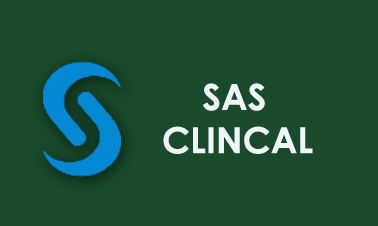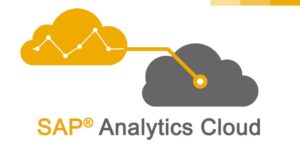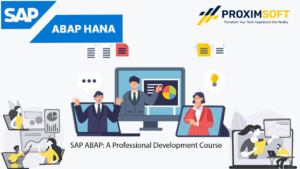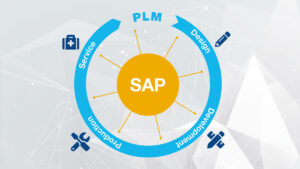Categories SAS
CDISC: Mastering Clinical Data Standards with SAS

Welcome to Proximsoft’s advanced CDISC Training, your gateway to mastering Clinical Data Interchange Standards Consortium (CDISC) and SAS. Our program is created by industry experts to equip you with the skills needed for effective data collection, processing, and analysis in clinical trials for drug development. With a focus on CDISC standards, this course ensures you’re well-versed in the processes that streamline medical and pharmaceutical research, making you a valuable professional in the field.
In this comprehensive course, you’ll dive into the Drug Development Process, ICH-GCP guidelines, CDISC SDTM and ADaM implementation, and the creation of Define.XML. Gain hands-on experience with SAS for statistical analysis and learn to interpret the Statistical Analysis Plan. Whether you’re a medical professional, pharmacist, or aspiring SAS certified data scientist, our CDISC training will open doors to rewarding opportunities in the pharmaceutical and clinical research industry.
Why Learn CDISC with SAS?
- CDISC sets global standards for clinical data interchange, making it essential for professionals in the medical and pharmaceutical research field.
- SAS, a market leader in business analytics software, is widely used for data collection and processing in clinical trials, creating a significant demand for SAS professionals.
- CDISC certification enhances your industry standing, offering an added advantage in the competitive job market.
- Mastering CDISC with SAS opens doors to a wide range of opportunities in drug development, clinical research, and pharmaceutical industries.
| Mode of Training | Online live Interactive sessions |
| Duration of the Training | 6 weeks |
| Training duration per day | 60 – 90 min session |
| Software Access | Software will be installed/server access will be provided, whichever is possible |
| Training Materials | Soft copy of the material will be provided during the training |
| Training fee | Depends on the Requirement |
| Resume Preparation | Yes, at the end of the course based on the JD |
| Interview Preparation | Yes, by sharing some FAQ’s |
| Mock calls | Yes, 2 Technical Mock calls |
| Internship Project | Yes |
| Certification | Yes, at the end of the training |
| JOB Assistance | Yes |
| JOB Support | Yes |
| Weekdays | 6AM -2 PM EST & 6-11:30 PM EST (student can pick any 1 hr) |
| Weekends | 8 AM – 12 PM EST (student can pick any 2 hrs) |
What I will learn?
- Drug Development Process
- ICH-GCP Guidelines (E3, E6, E8)
- CDISC – SDTM, ADaM, and Define.XML Implementation
- Paper CRF’s, Annotated CRF’s, EDC
- Trial Designs and Statistical Analysis Plan Interpretation
- MedDRA Coding/WHO Drug
- Creation of SDTM and ADaM Datasets
- Creation of Trial Design Domain Datasets
- Programming Various Standard SDTM Macros
- ADAM Implementation Rules and Creation of ADAM Datasets
- FDA Submission Standards for ADAM Datasets
Course Content
Drug Development Process
- Drug Development Process
Drug Approval process
- ICH-GCP E3,E6,E8
- 21 CFR Part 11
- CDISC – SDTM, ADaM and define.xml Implementation
- Paper CRF’s, Annotated CRF’s, EDC
- Statistical analysis plan Interpretation
- Trial designs
- MedDRA Coding/ WHO Drug
- List of Domains
Understanding of SDTM Implementation Guide
- Basic of SDTM Domains
- CDISC Variable types and their importance
- Fundamentals of CDISC SDTM
- Special Purpose Domains
- Creating Custom SDTM Domains
- Timing variables in SDTM
- CDISC SDTM core variables
- Supplemental Qualifiers
- What is Controlled terminology and different types of terminology
- What is Special Purpose Domains (CO,SE,DM,SV)
- What is Intervention domain (SU,CM,EX,PR)
- What are Events observation class (CE,AE,DS,HO,DV,HO,MH)
- How to analyse Findings(DA,PE,VS,LAB,IE,QS,RP,SS,ECG)
Creation of Mapping/Metadata Specification as per SDTM Guidelines
- Creation of Mapping/Metadata Specification as per SDTM Guidelines
Define.XML
Define.XML
Creation of different SDTM Datasets(DM,AE etc)
- Creation of different SDTM Datasets(DM,AE etc)
Creation of Trial Design Domain datasets.
- Creation of Trial Design Domain datasets.
Programming of Various Standard SDTM Macros like study day,empty dataset
- Programming of Various Standard SDTM Macros like study day,empty dataset etc.
SDTM datasets validation and resolution
- SDTM datasets validation and resolution
ADaM
- ADSL Subject level information basics
- Information of BDS basics
- ADAM Implementation Rules
- Creation of Adam Metadata Specification
- Creation of ADAM datasets (BDS and ADSL dataset)
- ADAM datasets resolution and validation
- Creation of ADAM Define.XML
- FDA Submission standards of ADAM datasets
Course level:All Levels
Course Duration: 30h
Requirements
- No specific prerequisites are required for this course. However, a background in medical or pharmaceutical research, along with basic knowledge of SAS, will be beneficial.
Talk to Our Career Advisor
FAQ'S
CDISC, or Clinical Data Interchange Standards Consortium, sets global standards for the collection, processing, and analysis of clinical trial data. It is essential to streamline the drug development process and ensure data integrity and interoperability.
CDISC certification enhances your professional standing in the medical and pharmaceutical research field. It is widely recognized and valued, providing you with a competitive edge in the job market.
While not mandatory, basic knowledge of SAS is beneficial. The course covers SAS applications in clinical data standards, making it easier for participants with some SAS background.
Upon completing CDISC training, you can explore opportunities in pharmaceutical companies, clinical research organizations, and other healthcare-related industries. Roles may include data analyst, clinical data manager, or SAS professional.




